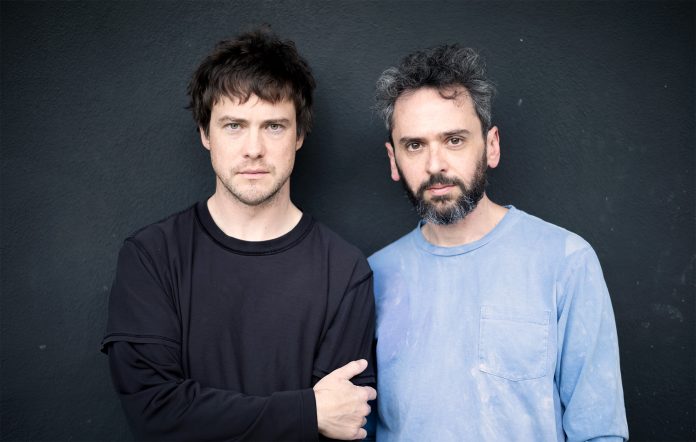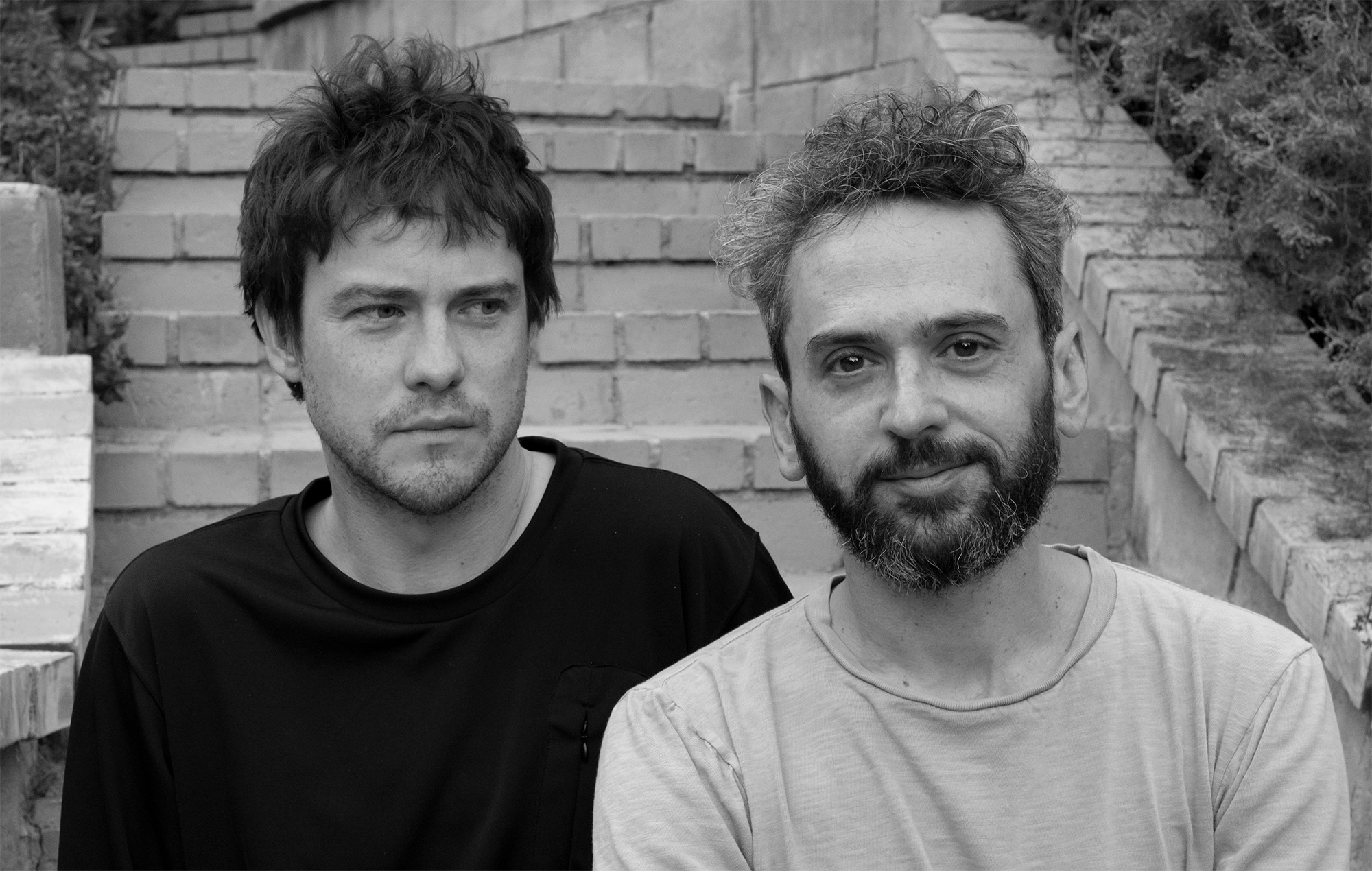Interviewer: MGMT, you’re back with a new album, Loss of Life. After six years since your last release, how does it feel to return with new music, especially an album that tackles such profound themes?
Andrew: It’s definitely exciting. The title, Loss of Life, might sound grim, but we see it differently. It’s about accepting the end of something to make room for something new. There’s a bit of The Lion King in that idea, you know? (laughs) We’ve been making music together for over 20 years now, and I think this album shows that we still have that creative spark we had when we first met.

Ben: Yeah, Andrew and I have known each other since we were 18 or 19, so more than half of our lives. Even though we’ve grown and changed as people, the music still comes from that same place. There’s some kind of alchemical magic that happens when we get together, and this album is proof of that.
Interviewer: The juxtaposition of joyful music and melancholic lyrics has been a hallmark of your sound since the beginning. How does Loss of Life continue that tradition?
Ben: We’ve always been drawn to that combination. It’s a way to explore heavier themes while still keeping a sense of humor about it. Loss of Life has a lot of that, from the Simon & Garfunkel-like melancholy to moments that harken back to the euphoria of Oracular Spectacular. It’s about finding that balance between tragedy and comedy, between being serious and not taking ourselves too seriously.
Andrew: Exactly. There’s a tongue-in-cheek element to a lot of the themes on this record. Some of the messages, like “love conquers all” or the importance of friendship, are things we genuinely believe, but we also want to let people know that we’re not completely up our own asses. (laughs) We’re still having fun with it. Like with ‘Bubblegum Dog’, it’s a slacker rock track with a synthesized sledgehammer, but it’s also based on this really strange teddy bear designed by Philippe Starck. It’s absurd, but there’s also something real there.
Interviewer: Speaking of ‘Bubblegum Dog’, that track has been floating around in your fanbase for years. Can you talk about how it finally made its way onto the album?

Ben: Bubblegum Dog has been part of our world since at least 2016. We mentioned it during a Periscope livestream, and it took on a life of its own among our fans. People started speculating about what it was, and the mythology grew from there. It was always a real song, though. We just hadn’t finished it until now. Knowing that there were people out there excited about it gave us extra motivation to finally get it done.
Andrew: The rumors around it were wild. I saw one that claimed it was going to be this epic, half-hour long multi-part song. (laughs) The reality is more straightforward, but we had a lot of fun making it. The video we shot for it plays on those ‘90s rock video tropes—Smashing Pumpkins, Pearl Jam, Soundgarden—but with a surreal twist. The concept was about running from the past and realizing that embracing the truth is the only way to find peace. There’s comedy, but also something deeper if you want to see it.
Interviewer: Your music has found new life on TikTok, especially with tracks like Time to Pretend and Little Dark Age. What’s it like to see your older songs resonate with a new generation?
Andrew: It’s pretty surreal. Time to Pretend recently blew up again after it was featured in Saltburn, and I’ve seen the TikTok trend where people use it to mark a shift in perspective. It’s ironic because the song is so cynical, but I love how people have turned it into something positive. It’s almost like a zen, psychedelic thing. They’re taking this dark, cynical song and using it to express something hopeful. That’s kind of what Loss of Life is about too—finding the light in dark places.
Ben: We’ve seen this happen before with Little Dark Age. It’s strange how every now and then we accidentally end up on trend. (laughs) But it’s fascinating to see how these songs take on new meanings in different contexts.
Interviewer: With the depth and complexity of your music, it’s surprising to hear that one of your songs is featured on Now! That’s What I Call Dad Rock. How do you feel about that?

Andrew: (laughs) It’s hilarious! I had no idea we were on a compilation like that, but I guess it makes sense. We’re getting older, so maybe we’re leaning into dad rock territory. I just hope people accept our new music as dad rock because it’s the closest we’ve ever gotten to it. If we failed at making dad rock, that would be really sad. (laughs)
Interviewer: The new album features some daring musical choices, like the opener Loss of Life (Part 2) and the duet with Christine and the Queens on Dancing in Babylon. How do these tracks fit into the overall vision for the album?
Andrew: With Loss of Life, we wanted to push ourselves creatively. The opener, Loss of Life (Part 2), sets the tone with this mix of old and new elements—an Oxford professor reciting an ancient poem over electronic flutes and harpsichords. It’s a weird combination, but it works because it’s true to the album’s theme of finding new life in endings. Dancing in Babylon is our pitch to bring back the duet. Working with Christine and the Queens was a dream, and the song has this haunting, beguiling quality that adds another layer to the album.
Ben: The whole album is about contrasts, whether it’s between joy and sorrow, the past and the future, or the serious and the absurd. Those tracks really encapsulate that tension. It’s like we’re constantly trying to balance on this tightrope between worlds, and that’s what makes it exciting for us.
Interviewer: You’ve maintained a unique place in music for over two decades. What do you hope Loss of Life adds to your legacy?
Andrew: I think we just want to keep surprising people, ourselves included. Loss of Life is an album that explores heavy themes but doesn’t take itself too seriously. It’s about growth, acceptance, and having a laugh along the way. If we can keep doing that—making music that’s both meaningful and fun—then we’re happy.
Ben: Yeah, we’ve always tried to make music that feels honest, whether it’s joyful or melancholic. Loss of Life is another step on that journey. If people connect with it, that’s all we can ask for.
Interviewer: Thank you both for your time and insight. Loss of Life is a fantastic album, and it’s clear that MGMT is still evolving in exciting ways.
Andrew: Thanks so much. We’re glad you enjoyed it!
Ben: Yeah, thanks!
